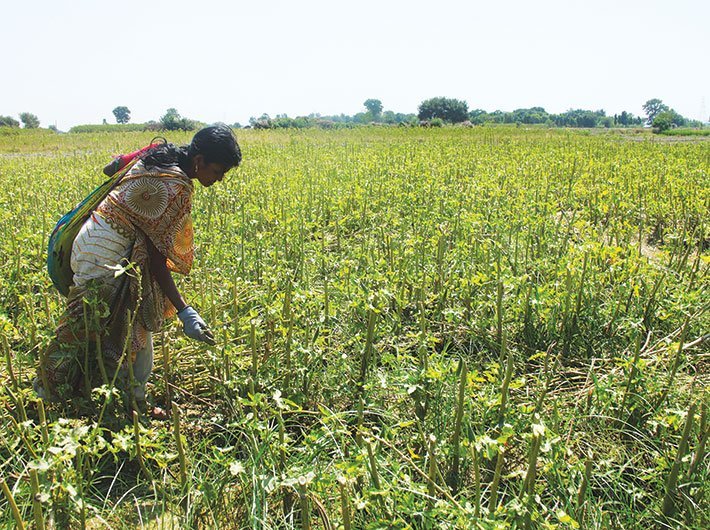The income from agriculture has been exempted from taxation in India, but it is high time that this changed
At a time when the government is trying to shore up its revenues so that it can carry on its ambitious projects, a key sector that has been left out of taxation is agricultural income. Policy makers need to take a sharp look at exempting agricultural income from taxation as there is a possibility of the well-heeled taking this route to pay less tax.
The comptroller and auditor general (CAG) has now started an audit of entities claiming tax exemption on agricultural income following suggestions from some political parties and income tax authorities that a blanket exemption be done away with and tax be levied after a threshold, reported Times of India.
It is never too late to begin taxing agricultural income, an emotive subject which political parties are normally afraid to touch. After all, once taxation starts on agricultural income, farmers will be impacted and politicians of all hues don’t want to touch this hot potato.
The logic for taxing agriculture income is quite simple – if you earn, then pay taxes. The moment exemption is introduced; it is bound to open up a channel for the rich to avoid paying higher taxes. Lawmakers need to promptly shut that exemption route, so that everyone who earns pays up.
In India, as per section 10(1), agricultural income earned by the taxpayer in India is exempt from tax. Agricultural income is defined under section 2(1A) of the Income-tax Act. As per section 2(1A), agricultural income generally means:
- Any rent or revenue derived from land which is situated in India and is used for agricultural purposes.
- Any income derived from such land by agriculture operations including processing of agricultural produce so as to render it fit for the market or sale of such produce.
- Any income attributable to a farm house subject to satisfaction of certain conditions specified in this regard in section 2(1A).
In May this year, Biju Janata Dal floor leader B Mahtab, during the debate on the Finance Bill, had asked: “Does it make any sense providing support to the big farmers, not taxing the agriculture produce of the farmers is one thing but not taxing the companies who are earning thousands of crores of rupees?”
Trinamool Congress member Saugata Roy too said that rich farmers should be brought under the tax net to widen the tax base.
Finance minister Arun Jaitley said that large farm-based income was rare and people using agriculture as a front to hide income from other sources need to be dealt with by the tax authorities.
The idea to tax the agricultural income is not a new one. In fact, it has repeatedly come up even in the recent past.
In June, the income tax department had proposed to target farmers with non-agricultural income above a certain threshold. This was one of the suggestions made by tax officers to prime minister Narendra Modi at Rajasva Gyan Sangam, a two-day conference of tax administrators.
“Tax officials made a specific suggestion that the government should consider taxing agricultural income, not fully but partially. It was said that people having a regular income alongside agricultural income above a certain threshold can be brought under the tax net,” Indian Express quoted a government official as saying.
Taxing agricultural income won’t be easy, even if politicians agree to do so.
A 2004 World Bank report “Taxing agriculture in a developing country: A possible approach” by Indira Rajaraman said that agriculture is a hard-to-tax sector everywhere.
“In developing countries like India, the task becomes even harder. Books of accounts are not maintained except in the plantation sector. Cash transactions not routed through the banking system pose barriers to verification and assessment of self-declared income. Together these add up to an insurmountable information vacuum.”
More effective taxation of agriculture is central to the development issue.
The paper argued that agriculture can become possible, if never easy, to tax “if it is attempted at the lowest, local level of subnational government. The information vacuum that confounds any attempt to tax agriculture is least formidable at local level, and compliance incentives exist when taxes paid are jurisdictionally retained for provision of productivity-enhancing local public goods”.
READ THE WORLD BANK REPORT
Though it is clear that taxing agricultural income is an uphill task, fraught with political pitfalls, it is indeed creditable that the government of the day has finally come around to pondering over this issue which has been hanging fire for decades. A beginning has been made, it remains to be seen whether the government has political gumption to pull it off.

